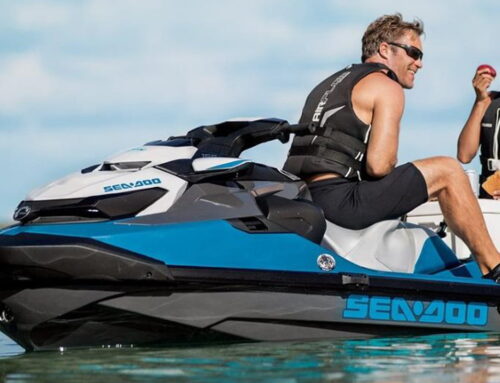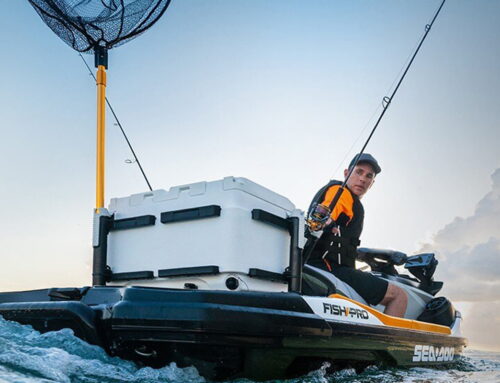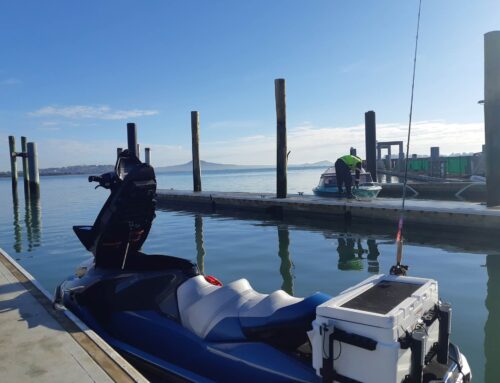Reduce your environmental impact while jet skiing
Do you love to jet ski? If so, my guess is that you care about the wellbeing of our lakes and oceans.
Reality check
Jet skiing is a lot of fun. And, if you act responsibly, your impact on the environment will be next to zero. Sadly, though, along with other personal watercraft (PWCs), irresponsible jet-ski use has been responsible for creating havoc on the water.
1: Take care when refuelling
This should come as no surprise, but here’s what happens when oil spills into lakes and oceans:
- It destroys the plant life that marine creatures rely on to survive.
- Fuel-contaminated water damages the insulating properties of birds’ feathers, which can result in them dying of hypothermia.
- Birds and mammals can suffer poisoning when cleaning themselves.
- Contaminated fish can experience stunted growth, enlarged livers, eroded fins and lose the ability to reproduce.
The best thing you can do to avoid a fuel spill is to fill up on land — and don’t overfill your tank. If you need to refuel on the water, use a spill-proof nozzle, and if a spill occurs, make sure you have absorbent pads on hand to clean up. Also, take care when using chemicals to clean your jet ski.
2: Mind that plastic
Plastic is durable, versatile and convenient. It’s hard to live without. The problem, though, is that it never goes away. For example, it can take 450 years — or more — for plastic to decompose. And, the thing is, when a plastic bag or container ends up in the ocean, it looks like food to wildlife. Did you hear about the washed-up whale discovered with 40 kilograms of plastic in its stomach earlier in the year? So, when out on your jet ski, whatever you do, make sure that all plastic remains on board. Also, try to avoid taking with you flimsy plastic bags and Styrofoam cups that blow away easily in the wind.
3: Be considerate
Jet skis are loud. Heck, that’s half the fun! But, to wildlife, your machine can look like a water-churning monster. So, keep your distance. And, never chase after any wildlife that is feeding, nesting or resting. Nesting birds are especially vulnerable to noise, and if you scare them, they may fly off exposing their eggs unprotected. Also, to avoid hitting a marine creature in your path, be mindful of your speed.
In reality, all it takes to be an eco-friendly jet skier is a dose of common sense. That way, you can enjoy New Zealand’s waterways while its wildlife remains unharmed.



